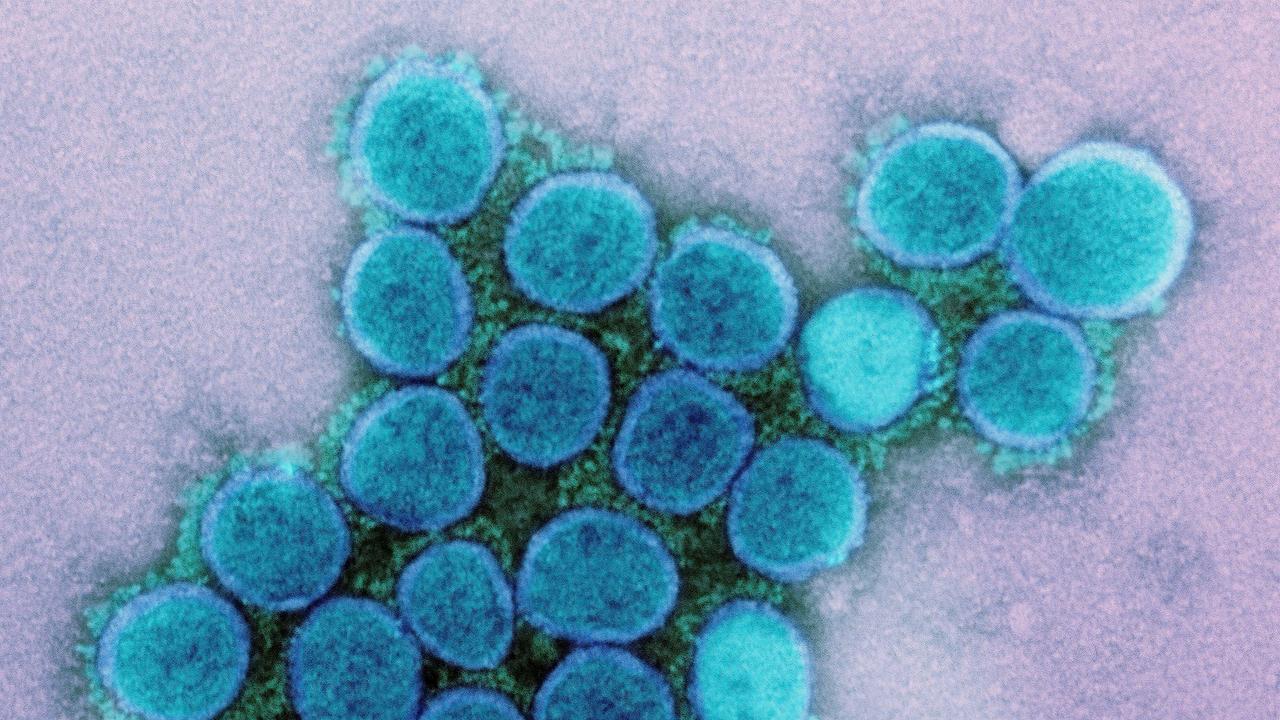Why it could be too late to stop Omicron circulating globally
Countries are snapping their borders shut amid frantic efforts to prevent Omicron spreading but experts have said it’s too little and it’s already too late.
Governments around the world have begun to slam borders shut and impose a wave of travel bans in response to the new Covid variant Omicron but experts have warned the effort could already be a “waste of time”.
It’s likely Omicron has already gone global, and it’s already been confirmed to be here in Australia with health authorities saying two positive cases landed in Sydney last night.
There are also concerns the reaction South Africa has received to alerting the world to the new variant, with countries around the world snapping their borders shut to the nation, could discourage future reports of new strains out of “fears of retaliation”.
The World Health Organisation declared Omicron a “variant of concern” on Friday after it was uncovered in southern Africa, with the strain showing a number of mutations that could make it more contagious than the Delta outbreak. It was first detected in Botswana and South Africa earlier this month.
Scientists and authorities are racing to understand the strain and are examining whether vaccine efficacy will be reduced on this variant.
However, there is still much uncertainty surrounding the variant with little information known about the full effects of Omicron.
The UN health agency said it could take several weeks to complete studies of the variant to see if there are any changes in transmissibility, tests and treatments.
Current vaccines may well prove to be extremely effective against the variant and should still offer protection against serious infection and death, according to experts.
Manufacturers are also investigating the issue with Pfizer announcing it could have a new jab to tackle the variant released within 100 days, while Moderna is working on a booster that would target Omicron.
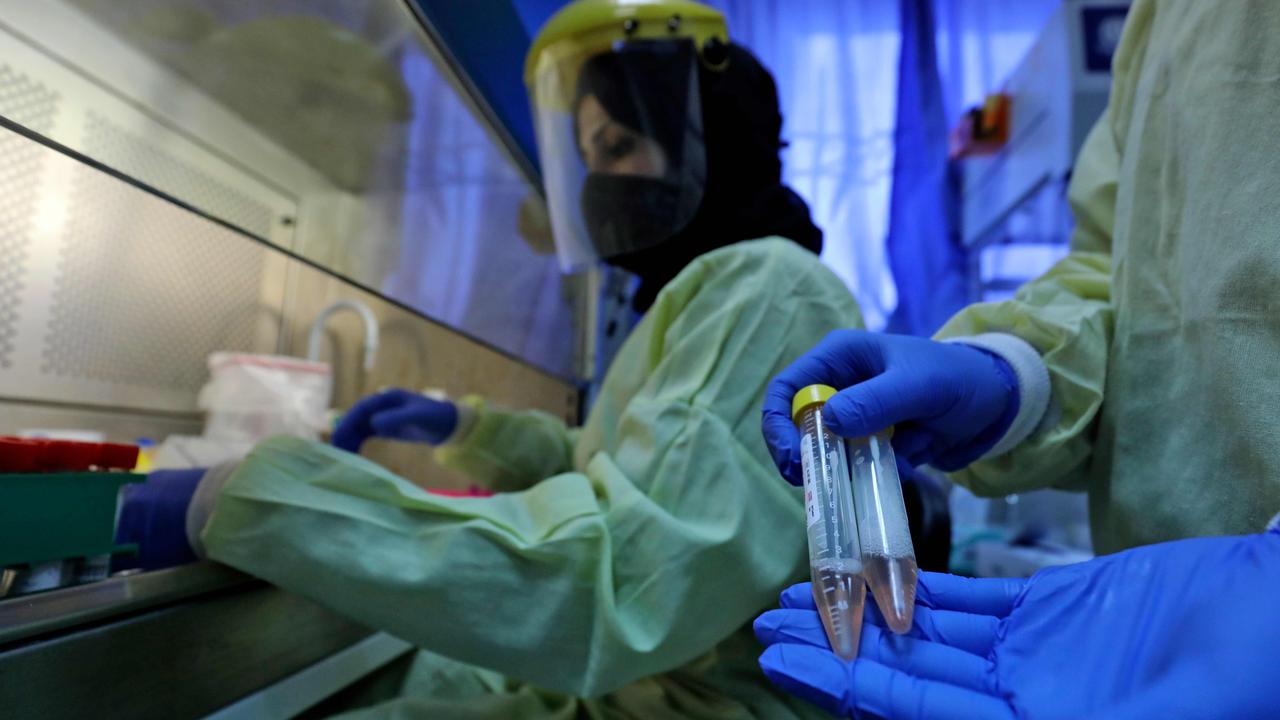
Travel restrictions and border closures
The UK was the first to ban flights from southern Africa, quickly followed by countries in the European Union and US, while Brazil, Canada, South Korea, Sri Lanka, Thailand, Oman and Kuwait have also imposed restrictions.
Israel has taken it a step further slamming shut its international borders to foreigners for two weeks due to fears of spread of the virus, while also imposing mandatory quarantine between three and seven days for Israeli citizens arriving into the country.
On Saturday, Australia tightened its international border to travellers from nine African countries where the new variant of concern has been found.
People arriving from the African nations of South Africa, Lesotho, Botswana, Zimbabwe, Mozambique, Namibia, Eswatini, Malawi, and the Seychelles into any Australian state or territory must undergo 14 days’ quarantine.
NSW and Victoria also moved to impose more onerous conditions with vaccinated travellers from all other countries required to isolate for 72 hours on arrival into the states.
International flight crews will need to isolate for 14 days or until they leave on another flight.
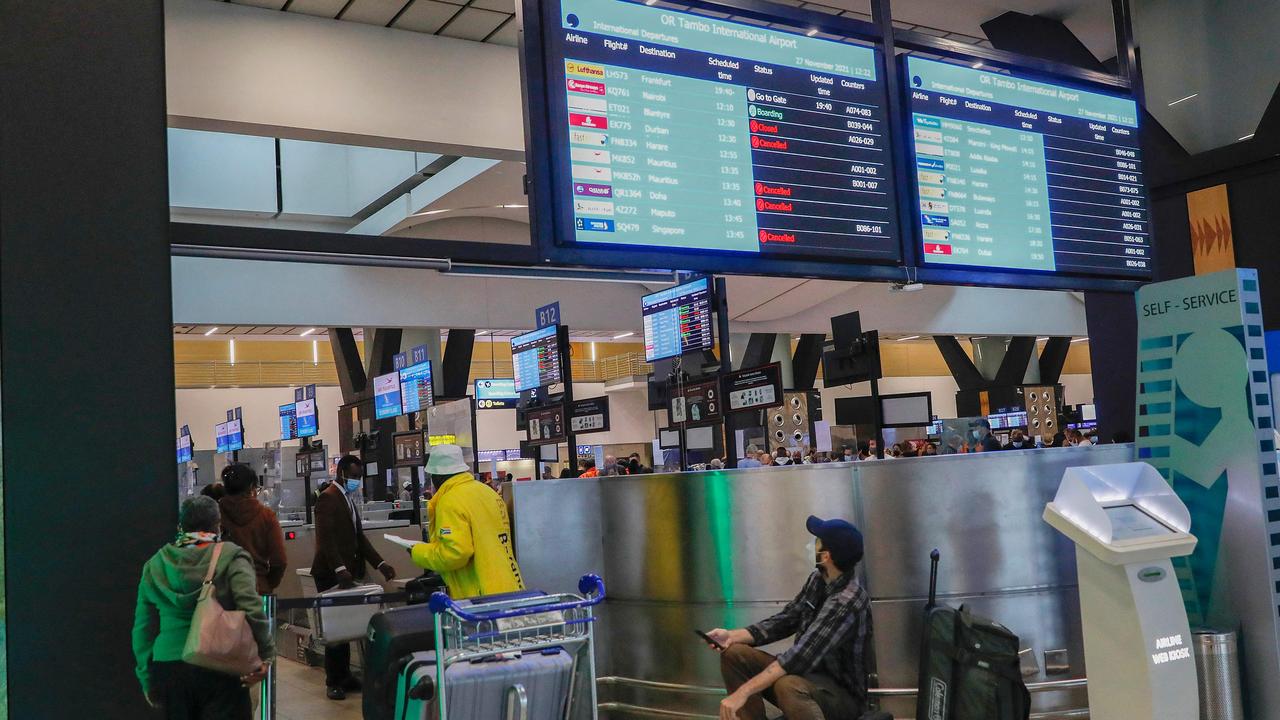
‘Waste of time’
But experts have warned that travel restrictions may be too late to stop Omicron from circulating globally.
Professor of psychology Stephen Reicher, a member of the UK subcommittee advising on the response to covid, warned travel restrictions wouldn’t prevent the spread of the new variant.
“Any border restrictions are only about buying time. So if we slap them on quickly but drag our feet in doing everything else, it really is a waste of time,” he told The Guardian.
Measures such as working from home and vaccine passports, which has been abandoned in the UK, alongside compulsory mask wearing, social distancing and contract tracing should be part of the arsenal to tackle the spread, according to experts.
Dr Boghuma Kabisen Titanji, a virologist and global-health expert at Emory University in the US, said evidence shows that by the time a travel ban is implemented, the virus has generally gone well beyond the borders of the country it was detected in.
“Instituting travel bans as a knee-jerk reaction can send the wrong message to countries that are contributing to the global effort of virus surveillance. We could end up disincentivising countries from reporting because they fear retaliation,” she told The Atlantic.

She said other measures could be taken to ensure travel is safe, such as only allowing the fully vaccinated to fly or requiring proof of a negative covid test.
“We will be better served if we put the emphasis on the countries that have seen the highest number of cases of this new emerging variant: providing them with the resources to actually contain the variant, and making sure that they have the resources for testing, for isolating cases, for doing the science that we need to better understand Omicron,” she added.
The South African government has expressed concerns the restrictions would hurt the country’s tourism sector and economy more broadly and was engaging with countries to ask them to reconsider the bans.
And is counterproductive. Punishing South Africa for its swift response, transparency and ability to collect and analyse the data will hurt us all. Huge job losses will result from the loss of the coming tourist season. That has significant public health consequences.
— Mary Lloyd (@MaryLloyd4) November 27, 2021
So far South Africa has vaccinated under 40 per cent of its adult population, while less than 8 per cent of Africa’s more than 1.2 billion people are fully jabbed.
However, Dr Titanji was confident that the emergence of the Omicron strain would not put the world back to “square one” and said the vaccines already administered are not “completely useless”.
“We have not yet seen a variant of concern emerge that has been able to completely escape the effect of vaccines,” she told the publication.
“The immunity from the vaccines may be less protective, which may translate into more post-vaccine infections from a new variant, if it takes off. But that is yet to be determined. We also know that a booster dose really does boost the antibody response.”
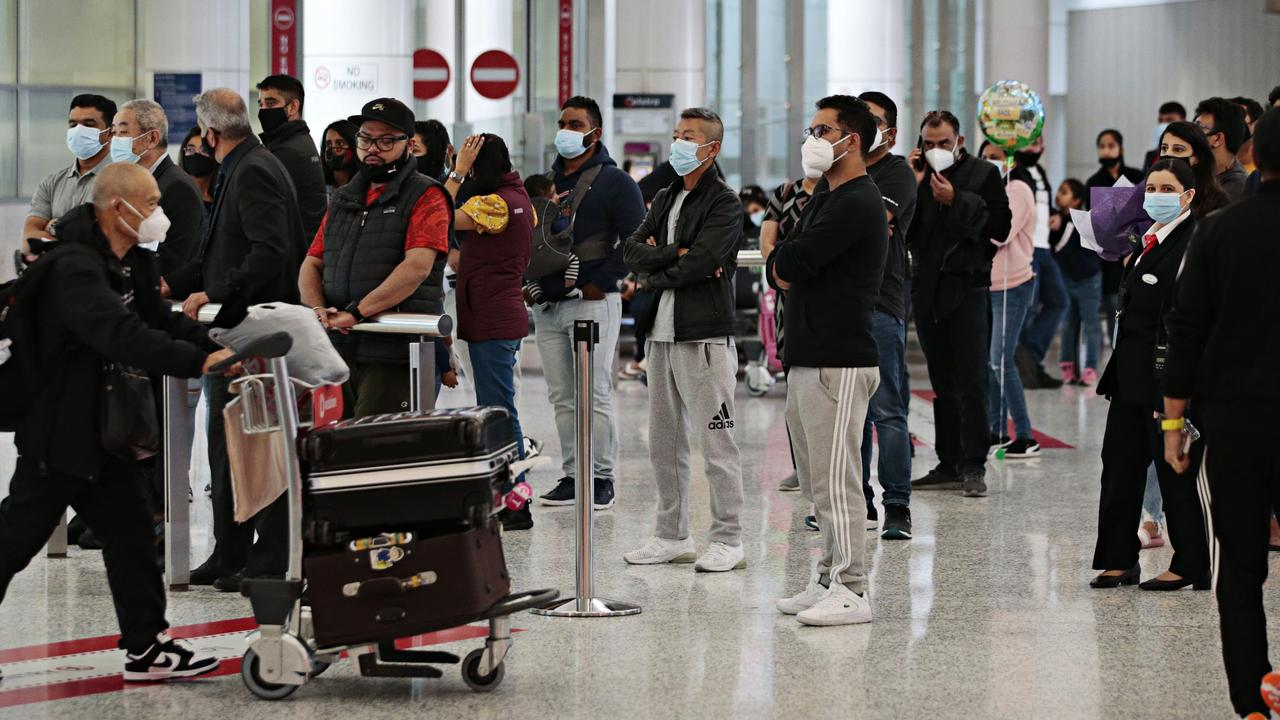
Where the cases are so far?
In Australia, NSW Health has confirmed urgent genomic testing undertaken on Sunday shows two overseas travellers have been infected with the new Omicron B.1.1.529 Covid-19 variant of concern.
Both passengers came to Sydney from southern Africa on the evening of Saturday November 27. They underwent testing on arrival and tested positive for Covid-19 late last night.
The two positive cases, who were asymptomatic and fully vaccinated, are in isolation in the Special Health Accommodation.
The two passengers were among 14 people from southern Africa who arrived on Qatar Airways QR908, Doha to Sydney, which arrived around 7pm on Saturday November 27.
The remaining 12 passengers from southern Africa are undertaking 14 days of hotel quarantine in the Special Health Accommodation.
Around 260 passengers and aircrew on the flight are considered close contacts and have been directed to isolate.
Meanwhile, Israel has reported one case of the Omicron variant, while seven other people are suspected to be infected with it, and it flagged plans to reintroduce counter-terrorism phone tracking to help contain the spread of the virus
On Saturday, the first two UK cases emerged linked to travel to southern Africa, while Belgium also announced a case.
Germany also discovered two Omicron cases and in Italy a case has been uncovered in Milan in a person coming from Mozambique.
The Czech Republic was investigating a potential case in a person who spent time in Namibia.
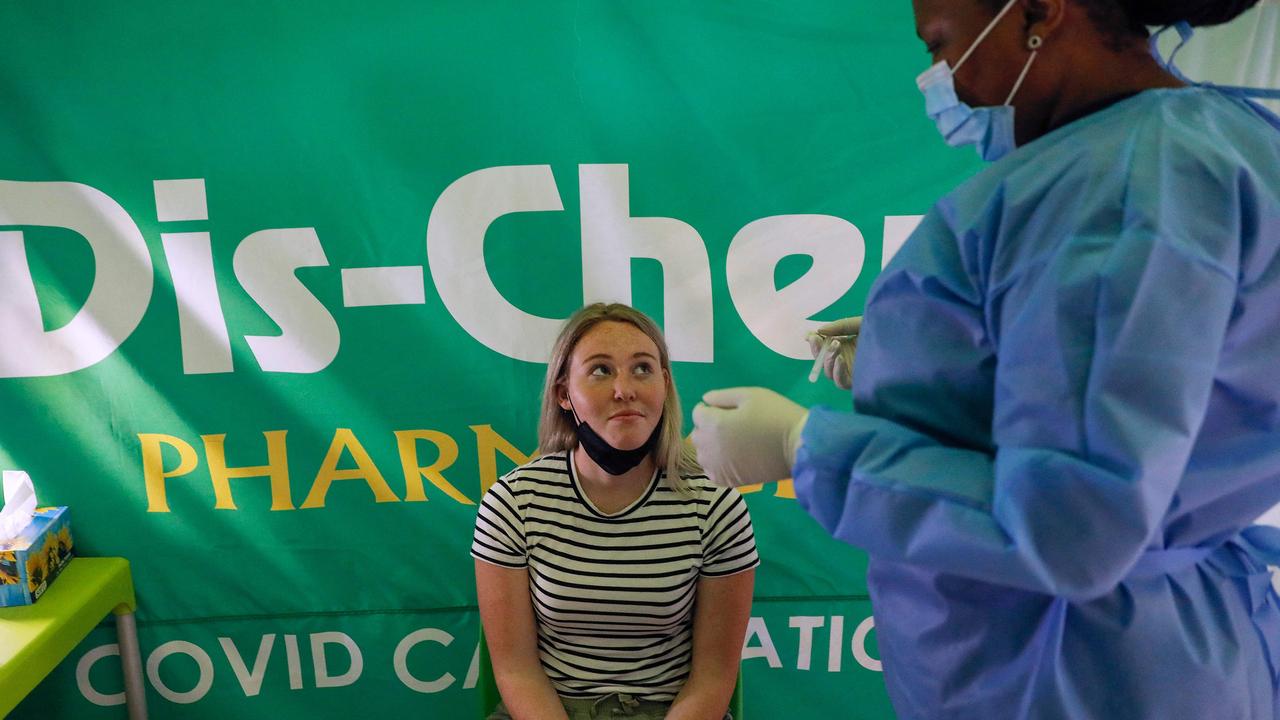
Why are experts and politicians concerned?
The Omicron variant has more than 30 mutations on its spike protein which is more than double carried by Delta, making it a particular concern for scientists.
Such a significant change has raised doubt antibodies created from previous covid infections or vaccination would be enough to protect the person from becoming ill.
Virologist Dr Tom Peacock from London’s Imperial College, said Omicron was the first time he had seen two particular mutations in one variant.
“Export to Asia implies this might be more widespread than sequences alone would imply,” he tweeted.
“The extremely long branch length and incredibly high amount of spike mutations suggest this could be of real concern (predicted escape from most known monoclonal antibodies.”
However, Professor Sir Andrew Pollard, whose team developed the AstraZeneca vaccine and who is the director of the Oxford Vaccine Group, said the location of the mutations meant vaccines may still be effective.
“If you look at where most of the mutations are, they are similar to regions of the spike protein that have been seen with other variants so far,” he told BBC Radio 4’s Today program.
“That tells you that despite mutations existing in other variants, the vaccines have continued to prevent very severe disease as we’ve moved through Alpha, Beta, Gamma and Delta.”
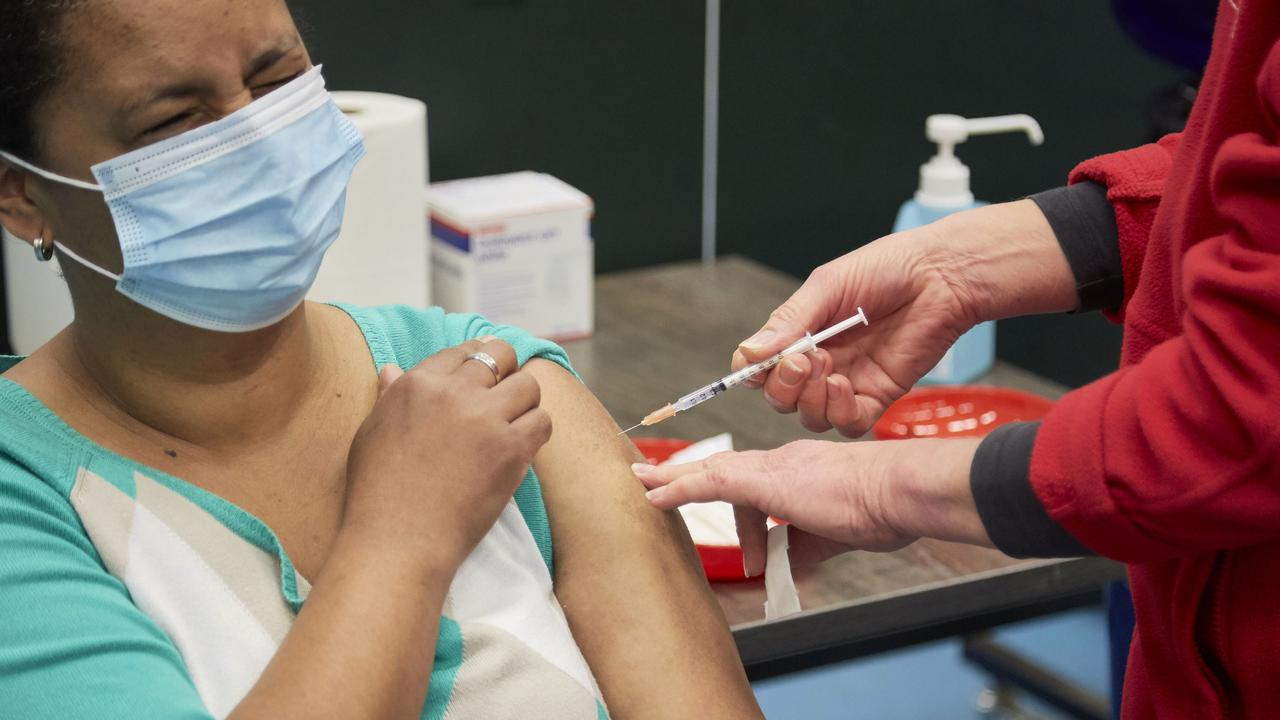
Australia’s chief medical officer Professor Paul Kelly said at the moment, the global understanding was that Omicron was “quite different” to previous variants of concern.
“But at this point, other than understanding that it is transmissible between humans and is transmitting particularly in South Africa and those surrounding countries, we do not have any clear indication that it is more severe, or any definite indication of issues in relation to the vaccine,” he said.
Health Minister Greg Hunt echoed the chief medical officer’s stance and said there are no signs that this is a more dangerous disease in terms of its impact on hospitalisation, serious illness or loss of life.
But Victoria’s chief health officer Brett Sutton said there are concerns it is a “very transmissible” variant given the rate at which it has spread in southern Africa.
More Coverage
In the South Africa province of Gauteng, 90 per cent of cases are likely to be the new variant.
Prof Sutton noted the big question surrounded what immunity current vaccines would offer.
“It will probably take some weeks to find that out,” he said. “What we do know about Omicron is not enough.”





